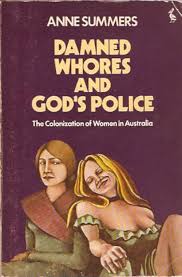Philip was the fifth child, the only brother of four elder sisters who each married titled German Nazis, hence his appearance as a 16 year old at this funeral of his favourite sister Cecilie who had died in a plane crash in 1937. His head is bowed as though grief-stricken, but uneasy in the company of his Nazi relatives as the cortege moved through the Hessian city of Darmstadt.

He was fortunate because in the early 1930s he was placed in a German school run by Kurt Hahn, who was Jewish and forced to flee Germany after the accession of Hitler to power. Hahn in turn established Gordonstoun in Scotland, and Philip followed him there to be one of his pupils. Hahn had been helped by the Labour Prime Minister Ramsay McDonald to escape and come to Great Britain and establish himself. Part of the Hahn philosophy was to encourage self-reliance. That the young Philip had in abundance. His early socialisation had also attuned him to survival against everything. After all, even as a small boy he was a target for assassination.
His service in the Royal Navy left him a tall man, with an easy smile, hard searching eyes and a bearing which is found in most British naval officers. I never met him; probably would have had little to say which would have interested him anyway. He had lived his life when a young man; and he spent the rest of his life recuperating with a lady who was obviously besotted with him, as other women were. He was smart enough to realise not to follow the path that his father took “in burning his aristocratic bridges”.
A magnificently calculating man, but so anybody would have been in order to survive that tumultuous childhood he had. Yet he never abandoned his sisters, and his mother eventually moved into Buckingham Palace where she died in 1969.
I must say that I have never watched The Crown, and even if I had, my biases would have been such that any portrayal that did not fit into my view of the House named for a particular knotted tie popularised by that proto-Nazi, Edward VIII, would only be reinforced. Philip wanted the British Royalty to adopt Mountbatten, a far better name.
I have been a Republican since university; the Queen has lived a life which exemplifies the fact that inducing ennui is royalty’s survival grace; she has survived the Diana soap opera by ratcheting up the ennui; her three prince sons are dropkicks (one of whom should read Vanessa Springora’s Consent) – but Philip was something else. I would struggle to think of anything he actually achieved except naming rights on his eponymous Award and the many plaques, cocktail parties and dinners to cover those organisations to which he had provided his benison. And yet view or read his often savage quips; they are the comments of an unsettled person. But surviving his childhood, that was something even if the rage never left him.
A visão melancólica de Portugal
I wished I had started to learn Portuguese years ago. I only started when I did a short course in Traveller’s Portuguese, before going to Brazil and Timor-Leste in the one year. That was 2019 before the pandemic, but we had booked a Ponant cruise from Dakar in Senegal to Lisbon for March last year. On the way, the ship would first berth at a former colony, now the country of Cabo Verde and then after a brief time onto the Canary Islands, which are Spanish, it was on the Portuguese Island of Madeira; thence to Lisbon where we were due to travel around the country for two weeks. The Virus intervened, and therefore a viagem por terra e por mar was on hold for an indefinite period.
However, the language and then the culture started to intrigue me. The language is supposed to be more akin to French than Spanish – as one writer wryly compromised by saying that Portuguese is Spanish spoken with a French accent. Both Portuguese and Spanish have inherited a raft of Arabic words, whereas French has absorbed a number of Germanic words.
Nevertheless, there is a consensus that Portuguese is the most difficult of the four common Romantic languages, but if Romanian is included, then there are some exasperating tricks in its pronunciation. Even though Romanian overlaps to a great extent with Italian, the word for “thank you” in Romanian is mulțumesc, betraying its Slavonic influence and somewhat different from the Italian grazie.
My teacher has complimented me on my Portuguese accent. A major difficulty I have, especially as my hearing is not as acute as it once was, is in comprehension, as does the generous use of accents, the Portuguese tilde and the cedilla keep one on one’s metal. This is especially true when one has to write down a particular word and then pronounce it. My favourite example is avô and avó. The first is muted and means grandfather; the second is said with a flourish, grandmother.
It is such an enticing language, but I am at the crossroads. Have I done enough as the prospect of overseas travel is now remote? Yet, the more I have become involved in Portuguese culture the more it intrigues. Listening to their traditional music, fado, one feels the whole pressure on a people, the Lusitanians maintaining their identity on a peninsula predominantly peopled by the Hispanians, from which they barely separated but squeezed into a narrow strip of land against the Atlantic Ocean.
As they developed their modern Portuguese identity, the Lusitanians became fishermen and seafarers, and venturing out they officially colonised the Azores archipelago in the mid-Atlantic in 1449. Although his expedition circumnavigated the world, Frederic Magellan may have been Portuguese, but the ill-fated expedition was funded by the Spanish monarchy. Magellan was killed in the Phillipines, and there were 18 men left commanded by a Basque who eventually returned to Lisbon.

No, it was Vasco da Gama who was the epic hero – the Portuguese Ulysses, about whose voyage to India the Os Lusíadas was written by Camoens some years after his journey. Camoens was the pseudonym for Luís Vax Camōes, a poet adventurer who, as a Byronic figure, courted danger as he roamed the East. I remembered my father had a copy of his poem in our library, which lay untouched. I suppose it is time to keep on going and be able to revel in the original Portuguese. Bit of work to do, but it does provide an incentive.
Read Os Lusíadas and actually achieve something…talvez.
Optic moonstones
When I was 12, I was given a field cocker spaniel, who was flecked in blue black. He was a blue roan and I called him Smokey. He was supposed to be descended from the aristocratic line of “Ware” which has won more best dog awards in Great Britain than any other breed. Cocker spaniels, as the name implies, are gun dogs with their specialty being to harass woodcock. There are a number of variations in the breed, but I know I had this very energetic, dome-headed dog, who roamed our half acre, outer suburban plot of land burying his bones, avoiding being bitten by snakes and generally, not being neutered, very much the lad about town.
At about six years, he started to develop cloudiness in his eyes which slowly became solid white cataracts. However, he was able to live with his blindness until he was scuttled while I was away at University. Smokey was trying to cross the increasingly busy road to visit his mate, a dog who had cocker spaniel blood but was hardly pure bred.

Presumably this affliction was the result presumably of inbreeding, and today Smokey – at great cost – would have had the cataracts removed and lens inserted.
Yes, as I have had many years later. Cataracts are not a characteristic of either side of my family, and I had no sign of them until I started daily oral cortisone for my auto-immune condition. First, I noticed my vision becoming blurred even with glasses and so, as with so many of my age, I had one cataract done. The second – my right eye – was left, until recently. My sight in that eye was manageable, but one night out of curiosity, I tried to see out of that eye. I was completely blind – all I could see were moving shapes in a dirty yellow fog. This shock of blindness suddenly made me realise how important vision is to me, even though the artificial lens in the other eye enabled me to compensate and apparently have normal vision.
Now the second cataract has been removed, and the inserted lens is gradually settling down, so my vision is almost back to normal in my right eye as well.
The experience of the operation is something in its variety of illusions and hallucinations. Whereas the first operation was sedate in that my vision during the operation was coated with a black background and oval white spots like a severe Marimekko pattern, this time it was something else.
First, I saw an ironbark forest portrayed as though it was a magic forest – clearly defined but a very emerald green fading into a very brown hill that resembled a bear pelt. Then it changed to a village scene, with hints of Brueghel as photographed by Dupain. The curtain came down, and red and black lacunae dotted the lenscape with a sudden outburst of teal marshmallows exploding and then it was over – I felt the final stitch and then the lights of the operating theatre appeared. The entertainment had finished.
My eye was strapped and then I was off to the recovery room. It had been swifter than anybody thought – 20 minutes.
I had a turkey sandwich with cranberry sauce and a juice for a delayed lunch, but no grog for 24 hours. Probably just well. Who knows what I would have seen?
Feminism – A slogan?
I accidentally switched onto a TV program which paraded a selective group of the women who apparently shaped the feminine diaspora during the 1960s and 1970s. One of the major networkers of her time, Gay Davidson, was totally ignored by this documentary. Gay was the Canberra correspondent of The Canberra Times. Gay had contacts across the political spectrum. She was a very generous host, an astute person who had come from New Zealand, marrying Ken Davidson, The Age economic writer of the time. They had two daughters, Tui and Kiri, who were very much part of the Davidson’s life until Kiri’s tragic death from a rare late complication of measles.
 Of the women featured, I had met Anne Summers through Gay, and one piece of advice left an everlasting impression on her – as she did on me with her own blunt opinions. Her legacy beside being a founding member of the Women’s Liberation Movement was her book Damned Whores and God’s Police which achieved a certain cult status.
Of the women featured, I had met Anne Summers through Gay, and one piece of advice left an everlasting impression on her – as she did on me with her own blunt opinions. Her legacy beside being a founding member of the Women’s Liberation Movement was her book Damned Whores and God’s Police which achieved a certain cult status.
There in this documentary a clutch of elderly women was being interviewed about their reminiscences of that time, which was universally said to be “an exciting period”. Perhaps, but having lived through the same period where there was scant childcare, where abortion was banned, where most women were still consigned to a second class status, it was interesting to listen to the various apologia. Perhaps the most disturbing comments came from Elizabeth Reid, who Whitlam appointed very publicly as his Woman’s Adviser in 1973, and then sent her on her way two years later after the disastrous “Summit” she had convened. The problem with Ms Reid is she smiles a great deal but has no sense of humour – a fatal combination.
The fault with government is that it does not learn. The recent appointment of one of the most “retentive” Ministers as “Prime Minister for Women” does not help. Marise Payne is a woman so stitched up that she burbles rather than talks naturally, and such a damaged woman is set up for an impossible task. Then there is the proposal for a National Summit to discuss women’s problems presumably to be organised by the gaggle of female Ministers delegated this task by Morrison.
If I were a cynic, I would think that the government is expecting every extremist women’s group to turn up and then fire up latent community prejudices around the Alphabet group; presumably Morrison would expect them to treat the Summit as though it were a winter Mardi Gras. In so doing, a perverse government would hope that such activities would undermine the very significant gains women have made in the first part of the year since the initial Brittany Higgins’ accusations. Then after a disastrous Summit, Morrison would have clear air in his narrowly-based constituency for another electoral victory with yet another discredited feminine movement on the sidelines.
I hope this bunch, with Grace Tame at their head, are smarter than Morrison and his misnamed bunch of Liberals thinks they are and can handle the fringe movements.
One tip – ensure that the girls in the forefront of the protest turn up in their school uniforms. An absolute rejection of the Morrison tactics. And if they can induce some of the evangelical “Christian schools” to join in, so much greater the impact.
Consent – A memoir
In a previous blog, I mentioned the above book recently translated from the French, which details the experience Vanessa Springora, the author, had as a 14 year old and onwards as the child lover of a guy, a prominent French author who was 50 at the time. I have now read it, “a gut-punch of a memoir with prose that cuts like a knife”, as one reviewer put it.

His name was Gabriel Matzneff and he actively promoted paedophilia as some form of love. In the seventies, even up to the nineties, he was lauded for his “progressive attitudes” by a wide variety of his contemporaries, both male and female. When you look at photos of him at the time, he looks a fit, tanned, good looking individual with the scrubbed face and bald head of a Yul Bynner. Yet his is the face of a satyr, who purports to be a member of the human race because of his lyrical phrases justifying the destruction of vulnerable young human beings for his own pleasure. He and the author corresponded, and in his array of books he referred to her and her letters to him without any consent even being given.
Twenty years on, he is the same animal, but a more decrepit 83 year old now being pursued by the police. His prurient ideas have long lost currency with his highbrow audience.
The book confronted me with her description of this person having anal sex with her at 14. This act is perpetrated by this middle-aged man who professed his undying love for her. She describes her absent father returning, screaming about Matzneff being a pervert and storming out again. Yet her mother condoned the relationship. Never any support, with fellow school students well aware of what was going on and she, forced into a pattern of sleazy trysts away from their prying eyes.
What is painful is to follow the descent of this young woman, even after she extracted herself from his clutches – although there was always the fear of him stalking her professing his love. This was the same man who regularly went to the Phillipines to satisfy his lust for pubescent boys, all the time crying the purity of his motives. He even offered to take her to show the purity of his motives.
Vanessa did not commit suicide; she habilitated herself and found a husband who she says cares for her. After all, she is in her mid-forties.
She is very matter of fact; no gushing over having found a caring male and having a son. It was her husband who encouraged her to write the book.
Her translator, Natasha Lehrer, writes a very perceptive note.
Even at the age of fourteen, Springora instinctively understands that her abuser is using language to steal her soul. One day he determines to write her assignment for school, an experience she describes as “dispossession”. Throughout their relationship he takes endless notes in his Moleskin notebooks, and uses them later to turn her, barely disguised, into a character in several novels that are published to some acclaim by the most esteemed Parisian publishing houses.
To Matzneff Vanessa was just a character to be followed by other girls while she was erased. She now is a restored character, not erased, having survived that torment.
She is a publisher, and this was her first work. The book deserves to be widely read. It is easy to despise G.M. as she labels him in her book, but he is one of many. Undoubtedly they lurk in Parliament House, but they are not confined to just one feed lot. Ms Springora has shown the power of publication, not to be afraid to identify the oppressor, and hope the community will exact the appropriate penalty on her tormentor.
Meanwhile, I await the arraignment of Brittany Higgins’ rapist.
Mouse Whisper
Not to put too fine a point (or is now jab) on it, Bhutan vaccinated their whole population of 800,000 in a week, after delaying the inoculations for two months because the time was inauspicious according to the governing body, Zhung Dratsang, which is apparently not translated as Minister Hunt.

